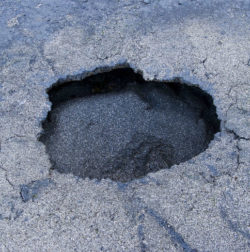This week we received the heartbreaking news that our son’s best friend, Joaquin, a 16-year-old boy, is not cured of cancer. It has come back. It’s been less than a year since he finished treatments.
The ground fell away.
Rage stirred inside me. I was angry that this disease isn’t gone from his young body. Had he not endured enough? I was also angry that the disease isn’t gone from my body. This recurrence brought up feelings about my own diagnosis and recurrence. I felt dropped into a hole.
Mostly, I was feeling this boy’s pain of having to stand back up and face the steep climb of treatment and its exhausting, vomit-filled isolation. Once you’ve done it, you never want to do it again.
There’s a smaller, but similar feeling, in ultramarathons.
In ultra running, the races are designed to test your mental strength as much as your physical endurance. It’s not uncommon to run up a 12,000 foot mountain pass, crest the summit, run down the other side, then you have to turn around and run back up the mountain.
The moment when you understand that you must run back up the mountain is soul crushing. You are no longer innocent. You remember the lung-bruising climb and you just don’t want to do it again. You will do anything to avoid going back up that mountain. It’s not unusual that many drop out of the race at this point.
One time, while racing in an ultramarathon, I insisted on lying down on a bed of rocks instead of climbing back up the mountain. I convinced myself it was a great place to spend the night. But it was only eleven o’clock in the morning.
Just as I was about to curl up with the rocks on the wet ground, two race volunteers dressed as sunflowers jumped out from behind a tree. They handed me a chocolate chip cookie and a sports drink. They sang to me. I don’t remember what they were singing, but their songs and snacks got me to my feet. When I stood up, they cheered for me like I was a champion, not just someone who had avoided self-induced hypothermia. I walked up the trail. Gradually the walk turned into a run.
There were switchbacks that made the ascent a whole lot easier than I remembered. I finished the race. I might still be back there on that bed of rocks if it hadn’t been for those race volunteers, people who believed in me. Their kindness and cookies helped me to put one foot in front of the other.
The feeling reminds me of something a former student at the Mountain School, Abby, wrote to me after my diagnosis.
“I have taken up Olympic weightlifting. There’s a point when you’re at the bottom of a lift, when the weight seems heaviest. It’s called “the hole.” When you’re in the hole, it seems impossible to stand up. My thought when I am in the hole is, “If I can stand up, I will be stronger for it.”
To stand up out of the hole, it takes faith that you are capable of far more than you think. But at first you need others to do the work of believing in you. It takes friends.
Here’s to friends who show up with cookies and kindness, and other friends who bring soup and bread, spinach and eggs. Friends who send letters and warm shawls. Friends who show up with empty hands, best for hugging. Friends who offer a shoulder to lean on or even a baseball bat and a trash can to beat up.
When I ask Joaquin and his family, How do you want to live now? They say something like,
We defend happiness. We race go-karts and play in the snow. We go out to dinner with loved ones. We fill each moment with fun, love, and light.
This is how they stand back up. I know of no better way to live.
You can’t do it alone. But you’ve got to stand back up. You will be stronger for it.
Love,
Susie
image credit: Eirik Refsdal, Flickr
***
I’m baaack coaching and speaking again! I’d love to help you thrive and stand back up after setbacks in your life. I’ve also crafted a 45-min keynote on how people and organizations can thrive in turbulent times. Do you know an organization or conference that needs this message? Get in touch with me.

